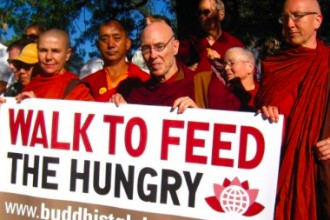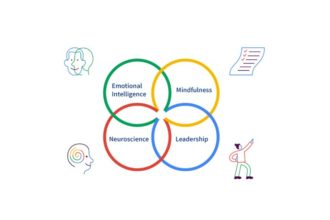
Sit Down and Shut Up: Pulling Mindfulness Up By Its (Buddhist) Roots
…Buddhism,” he added. “But that’s more about me and my politics than it is about Buddhism.” The Buddha wasn’t mindfully coding apps—but he wasn’t scrawling lefty placards, either. Loncke acknowledges that concerns over cultural appropriation in engaged Buddhism are “hella real,” adding that “it’s not very helpful” when practitioners “look back to the life of the Buddha or his teachings for . . . guidelines about what policy choices to make.” Such…
Read More









